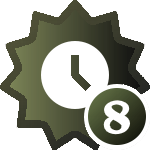
fishyfry
Members-
Posts
234 -
Joined
-
Last visited
-
Days Won
9
fishyfry last won the day on June 15 2018
fishyfry had the most liked content!
About fishyfry

Profile Information
-
Gender
Male
-
Location
Nowhereland
-
Occupation
Student
-
Interests
Tea, reading, good tv, and music, of course.
-
Favorite Composers
Beethoven, Stravinsky, Debussy, Mahler, Bach, Prokofiev, Chopin, Haydn, Bernstein
-
My Compositional Styles
Mostly neo-romantic with some impressionist influences, although I am currently trying out many different styles of composition.
-
Notation Software/Sequencers
Musescore
-
Instruments Played
Horn, Piano, Guitar
Recent Profile Visitors
fishyfry's Achievements
-
Nice stuff. After so much of the same, it feels extremely significant when that F# is introduced over the drone. However, I feel like it very strongly wants to shift to the IV chord to get a resolution from F# to E. Subverting expectations isn't a bad thing, but I feel that so strongly that resolving back to the G major drone sort of feels like a lot of build up for nothing to me. That's just my subjective experience of the music though. If this is the sort of think you'd like to study, the prelude to Wagner's Das Rheingold is roughly 5 minutes made up entirely of an Eb Major chord, and it's probably the best example of how to write something effective with a single chord.
-
This is great stuff. The first two movements have a sort of primeval feel to me. I think the last movement is seriously ingenious. Trying to create the equivalent of dubstep with this sort of ensemble is a really clever idea, and the execution is fantastic.
-
Hi all. This is a little neoclassical sort of thing I wrote last night instead of studying. My exam didn't go so well, but at least I've finished a piece. Hope you enjoy it!
-
Perseverance and Blaze~My Compositions
fishyfry replied to Christian "Cj" Rhen's topic in Orchestral and Large Ensemble
Hi Christian. I listened to Blaze, and enjoyed it. You've done a good job writing a piece that has a fun feel to it, and there's a nice contrast between very jubilant moments and slightly darker material. There was a sour note at around 0:41 that I found really jarring, and I think it really throws off the voice leading in the little brass chorale thing there. Also, I probably would have continued the 16th note lines in the flute, clarinets, and saxes at 3:40 rather than having them play 8ths with the rest of the band, in order to avoid losing forward momentum going into the next phrase. Otherwise, I don't have any suggestions. Cheers, and welcome to the community! I may listen to Perseverance later and share my thoughts, if I have any. -
Very nice. I think it evokes the feeling of walking down a trail in some misty woods where you can hardly see what's in front of you. I actually really like the drums, as they add a kind of primal element to the music that was interesting and a little surprising. But I do agree that they would benefit from being mixed a little more subtly.
-
For bass, I think it would be ideal to have a staff in bass clef 8vb along with a tab. I'm not sure what notation program you're using, but I know musecore does allow you to copy and paste from a regular staff into tab. It does tend to produce non-idiomatic fingerings though, so I typically have to edit the tabs. I'd recommend including notes explaining any notation you use for special effects, as there's not (to my knowledge) a particular standard for notating bass guitar techniques. That being said, I would just use typical symbols from stringed instruments for things like harmonics and slapping (Bartok pizz). Guitarists often move between notes with slides and hammer-ons. If you wanted to notate those, I'd use glisses for slides and slurs for hammer-ons. However, you could potentially leave those sorts of choices to the player's discretion.
- 3 replies
-
- electric
- composition
- (and 6 more)
-
Liam Doyle started following fishyfry
-
Symphony Attempt
fishyfry replied to Keifer Brown's topic in Incomplete Works; Writer's Block and Suggestions
My instinct is yes. Flutes are generally very agile when it comes to leaps. I'm assuming you would want it to be slurred in four 16th note groupings. I don't think that would be a problem at all, but if it's questionable, I'm completely confident it would work if just the first 3 notes of each group was slurred and the fourth tongued. Get a second opinion, ideally from a flutist. I think the best way to start being more deliberate about your instrument choices would just be to educate yourself on orchestration. There are tons of great resources out there. I own Samuel Adler's book The Study of Orchestration, which is such a great resource. It contains lots of wisdom and examples from great composers. Here's a youtube channel with some helpful bits of information, and there are others like it if you look. But the best resources of all are the scores that legendary composers left for us. I would highly recommend taking a look at the scores for some of your favorite pieces, and really studying what kind of choices those composers made and taking some time to think about why they did it and how you can apply their techniques to your own work. -
Symphony Attempt
fishyfry replied to Keifer Brown's topic in Incomplete Works; Writer's Block and Suggestions
Hey man. There's a lot to like here, especially for a first orchestral effort! Here are some of my thoughts on the instrumentation, but know I'm no expert and I can't really say anything definitive. M. 14-16: Not sure you need the 2nd oboe doubling with clarinet and trumpet. It goes into the very bottom of the oboe range, which isn't really idiomatic for passages in lower dynamics. M. 20: I would rethink doubling the 2nd violin trill in the trumpets and horns. It wouldn't be possible to do a half-step (F#-G) lip trill, and valve trills would have a chance of really muddying the sound there. That may be fine for your purposes, but you'd probably get a cleaner result from clarinet or oboe. M. 26-30: The 2nd flute line would probably have serious problems cutting through the rest of the dense orchestration. I get it's doubling the trumpet, but it's almost pointless because the trumpet would completely overpower it M. 40-47: The oboe doubling is again dipping a little too far into its low register. Generally, anything below the staff isn't very characteristic of the oboe. I would probably reassign that line to a clarinet, or have the oboist switch to english horn for that line, which I think may be more the sound you have in mind. Some general thoughts: The best advice I've heard for instrumentation is that your choice of instrumentation should clarify the form of the piece. I think you're getting this idea, since you chose to really cut back on the brass for the second theme after they had largely dominated the first (which is itself pretty unusual compared to what I would typically expect from orchestral writing). It seems like you get that idea, but I'd really encourage you to think about how the way you choose to orchestrate certain sections of the piece helps define how they relate to others. One last minor critique: It strikes me as odd that you have a long pause inbetween the first two themes. I really felt like the piece lost a lot of momentum and I really think it would be preferable to have a smoother transition between them. I hope I've been helpful and the things I've pointed out make sense. Forgive me if I've written anything strange, it's kind of late and I'm not thinking 100% clearly. -
Unfinished Band Piece
fishyfry replied to Charlie Carroll's topic in Incomplete Works; Writer's Block and Suggestions
Hi Charlie. I think there may be some kind of problem with your upload. When I attempt to download it, I get an error message saying "We could not locate the item you are trying to view" -
Personally, I think it works a lot better if you have the choir on the sustained notes leading up to doubling the melody, like you did in the second version. It creates a nice feeling of suspense during the long tones, and satisfaction once the choir comes in with the melody. Additionally, if you could start at a slightly lower dynamic and build up to the moment where the choir joins the melody, I think it would create an even more satisfying and dramatic effect. However, I don't know from this clip how this section falls in the overall context of the piece, so you'll have to judge for yourself whether that would sound good in this particular section.
-
[Open discussion] Young Composers Magazine
fishyfry replied to Maarten Bauer's topic in Young Composers Magazine
This is a really interesting concept. I will definitely be paying close attention. I'm not sure I'd have anything worthwhile to contribute, and as I'll be starting university in a few weeks, I'm not sure whether I'd have the time too. But I'll be very excited to get involved if I determine I am able to. -
Mesmerizing, Luis. I really enjoy it. I do think that it's possible to become immune to dissonance is possible to some extent, especially in a world that's been through impressionism, jazz, modernism etc. A well-adjusted pair of ears can appreciate extremely dissonant music, I think, as long as the composer is discriminating in how he chooses to use their dissonances. I doubt I could write anything that handled b9s and similarly dissonant intervals as well as you do here, but that's the kind of wisdom that a composer gains as he refine his craft.
-
Honestly, there are some wonderful things here. I don't think it's at all fair to say it's "objectively bad", even if it may be more flawed than the pieces that followed it. The main theme has just the right dark, wintry vibe and I found it seriously captivating. The only major gripe I have after one listen/reading is the entrance of the aleatoric trumpet section at m. 110. Personally, I felt like its entrance was too abrupt for such a stark contrast to the material that preceded it. I think it would really have benefited from having some more transitional material to get to that point, especially considering the narrative of the piece. Anyways, I take it that you've spend plenty of time thinking about the things you might have done differently, so I won't waste our time trying to pick apart your score. I just hope you aren't too quick to dismiss it, because it really does have some lovely ideas going for it.
-
Rain Has Fallen (Extended Tertian)
fishyfry replied to millert1409's topic in Piano Music, Solo Keyboard
Very cool. There's not much I can say except I love blues and you've got a great little riff here. Do post the full set of variations when they're finished. That's an interesting assignment and it'd be neat to see how you approach those different techniques. -
Trio in B-flat for Viola, Violoncello, and Contrabass
fishyfry replied to J. Lee Graham's topic in Chamber Music
Very nice! I'm sure it must be pretty difficult to write for this strange ensemble, especially in this classical sort of idiom where any particularly dark unpleasant noises are very undesirable. I feel like you did a fine job. At no point did the choice of ensemble cause anything awkward or distracting to happen in the music. The music itself was all really beautiful and great classical-style writing, I thought.



.thumb.png.8b5b433a341551e913a34392660bc95b.png)



